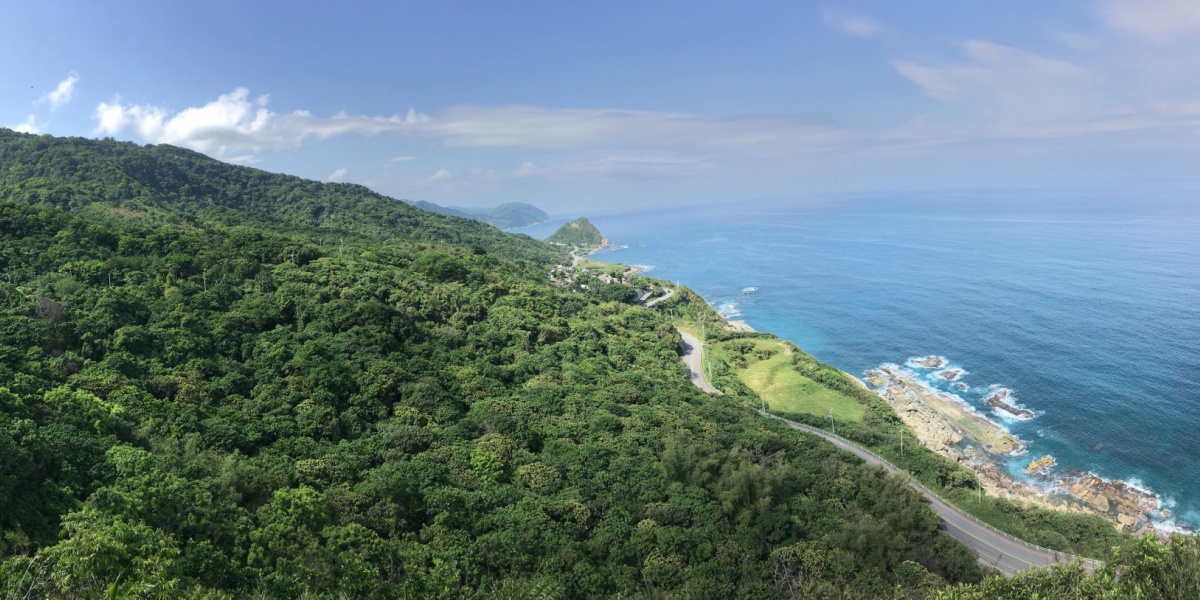Due to a lack of opportunity in the Hualien-Taitung region, youths move away when alternative prospects arise. This is part two of the Hualien-Taitung Youths Returning Home feature. It covers the story of two youths who returned to the Jiqi (Jici) Village of Fengbin, Hualien, and their initiatives to preserve the village culture and to keep traditions alive.

Gao Shan Forest Center: Ma Zhong-Yuan Bunun Tribe When Ma Zhong-Yuan first returned to Jiqi Village, he dreamt of starting an organic bamboo farm. After discovering that the land was unsuitable, he was inspired to create the Gao Shan Forest Center.
The Bunun tribespeople are known to be mountain people. Ma’s ancestors originated from the Central Mountain Range and migrated to Hualien-Taitung during the Japanese invasion. At a young age, he recalls being left alone in the mountains for hours in the day by his father for days, training to overcome his fear of loneliness in the dark. He remembers heightened senses, hearing more distant sounds and watching animals pass by in darkness. Bunun ancestors believe that one must understand loneliness before taking the bow and arrow. In this wisdom, Ma feels that to appreciate the Bunun culture, one must experience it in the mountains.

The Gao Shan Forest Center offers several excursions, with experiences ranging from a walk through the hunting trails to tree climbing to camping. In each of its tours, it emphasizes the spirit of the Bunun culture to respect nature and to live alongside its animals and plants. It also shares the taboos of hunting—to never hit one you cannot catch, to never hit a mother or baby, and to never hit one that is pregnant.
Village elders praise Ma’s method to preserve its environment and tribal culture. Ma believes not all native experiences need be understood through song and dance, the Gao Shan Forest Center shares culture in nature and harmony. Website: www.gs-forest.com

Hatila: Emas Amis Tribe Emas, an Amis native, decided to return to the Jiqi Village after a conversation with his grandfather, sharing concern about the village heritage fading once the elders passed away. Hatila is a space built by Emas’ great-grandfather over 100 years ago. Carved on the walls of Hatila is a historical map that traces the migration of Amis's ancestors. Without written language in their culture, the Han Chinese wrote the history of Taiwan aboriginals. Emas was inspired to uncover a more authentic history and worked with the National Dong Hwa University, conducting field research and interviewing village elders to piece together the Amis territory, landmarks, and transportation trails reflecting how the ancestors once lived.

Hatila offers five excursions, where tourists are guided to harvest wild vegetables – an essential element of the Amis food culture. Emas believes harvesting and holding the produce by hand offers an entirely different connection to the food one eats. Tourists learn that in every meal, they should take only what they need because the Amis understand there is a limit to what nature can offer, and one must value it.

Emas works with his tribespeople to learn and record traditional hunting methodhandicraftsaft, cooking, and music. They learn from the village elders to bring back their traditions. In learning traditional songs, they can understand their mother tongue. They collected recipes and created a guide to wild vegetables from an 80-year-old village elder just before she passed away. Emas hopes to record all traditions eventually passed down by village elders to give life to the traditions and keep them alive. Website: www.facebook.com/hatilainkaluluan







